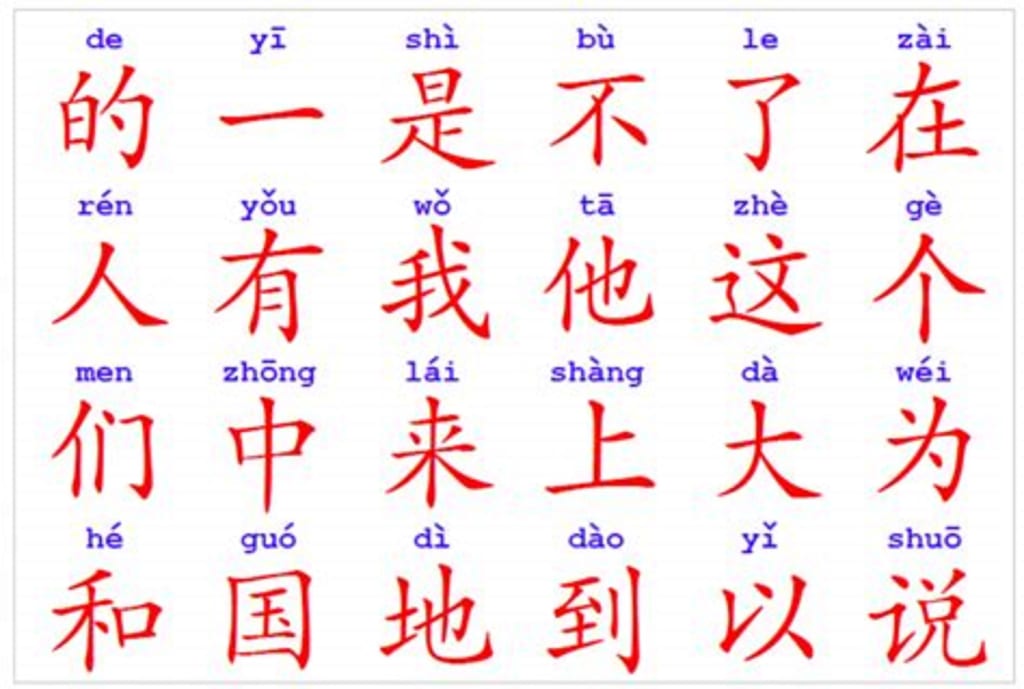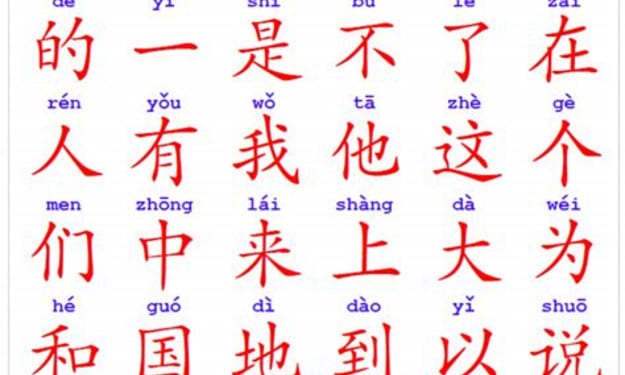
I love translating between Chinese, Japanese and English. Chinese has grammar remarkably similar to English.
One of my favourites is the Chinese word for contradiction: Maodun 矛盾. Its origin is from Classical Chinese. Someone boasted of having a spear that could penetrate anything and an impenetrable shield. Another proposed taking these two items to market. As these two weapons are mutually exclusive, the word maodun was formed.
Another is the Chinese for paranoia: The grass and the trees look like soldiers!
木草皆宾 mucaojiebin.
Chinese characters are living hieroglyph. Often, they look like the meaning.
Take for example, 舆 It means sedan chair. One of the components on top, 车 means vehicle or movement. I see a shelter built around a vehicle, a supporting pole and legs below.
The character 潮 chao, for tide: 氵is water, ⾞ is movement and 月 means moon.
The character 看 kan, for see: 手 hand above 目 eye.
好 means good. 女 nu means female 子 zi means child
雨 yu rain, to me looks like seeing rain through a window.
话 hua language, is 讠meaning word, together with舌 she meaning tongue.
林 lin and 森 sen, mean forest and woods respectively. 木 mu, on its own means tree.
So most meanings concerned with wood or tree will contain 木 and likewise, characters that have connection with the meaning word will contain 讠. Many characters are formed in this way.
电 dian is a common character. It means electricity. A computer is an electric brain, 电脑 diannao.
电车 dianche is an electric train; 电视机 dianshiji is an electric viewing machine; 电报 dianbao is an electric note or telegram, 电子 is an electric particle, electron and a pond of them is 电池 dianchi.
马车 mache is a horsecar, 火车 huoche is a steam engine and 缆车 lanche is a cable car.
The Chinese language uses many proverbs. A favourite is:
明足以察秋毫之末,而不見薪 One notices the autumn down on an animal but fails to see a cart full of firewood. To notice unimportant details and yet fail to see the bigger picture. Another is 沐猴而冠 Muhouerguan Bathe a monkey and give it a crown. To wear imposing clothing.
The Chinese language incorporates four tones. A New Zealand friend whose Chinese tones were perfect only when he sleep talked, was reading in class when he stumbled on a character. The teacher said gou. He thought she meant gou. The word was dog but my friend thought the teacher had said enough, you may stop reading now!
When translating, one is confronted by a myriad of ways to express. Does one stay true to original language and style, or does one express it in her or his own way? For example, an line from a Japanese classic, The Tale of Genji, one translation is; There was once and Emperor, we do not know when he lived, who favoured one lady more than others.
A different translator wrote; In a certain realm, there was a monarch who loved one woman more than any other.
The latter is more prosaic, whilst the former is a direct translation.
I once had the opportunity of translating the emails of a major Japanese manufacturer who was merging their battery division with another company. As usual, all mergers are first investigated by the Fair Trades Commission. The company was due to hold a meeting with an important client and knew they would be grilled over a certain matter. They had guaranteed a certain production level of car batteries yet knew it was impossible. Plans were to expand the production line which would reduce output. So they went armed with a battery of answers! My boss cringed when I began the story but chuckled. Translator’s rare opportunity to inject humour. I hope it was noticed.
Unlike Chinese, Japanese has a phonetic alphabet. This has allowed them to borrow words from foreign languages. Piman and pan are the words for pimento and bread respectively, reflecting early contact with Portuguese Jesuits. Stop is use as an order such as when directing a semi-trailer. Whereas Chinese renders computer as an electric brain, Japanese say compyuta.
I hope all you readers gain as much enjoyment as I from translating the written word.





Comments
There are no comments for this story
Be the first to respond and start the conversation.